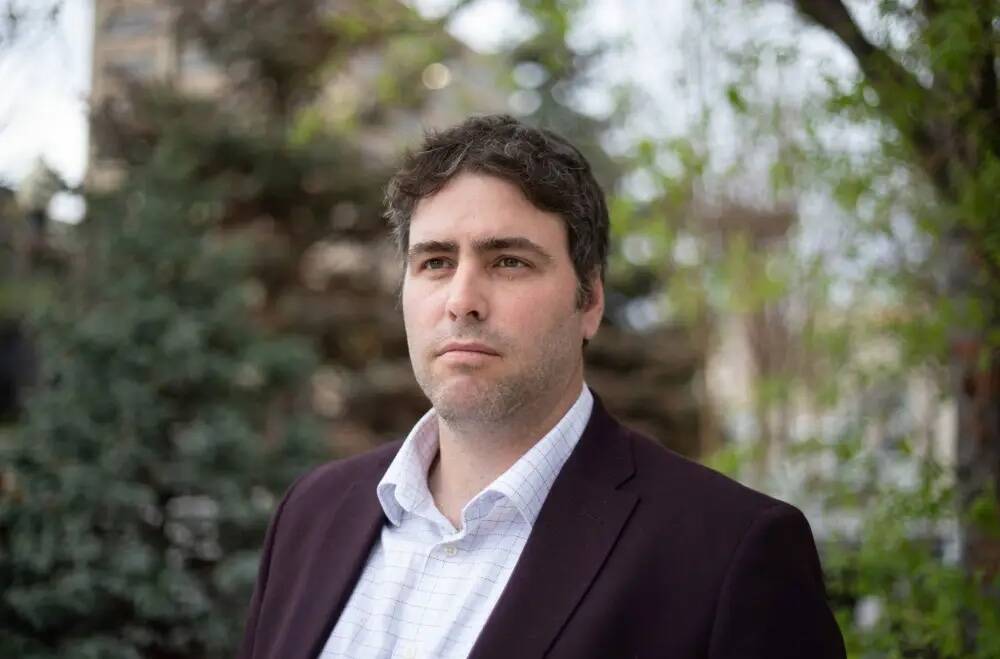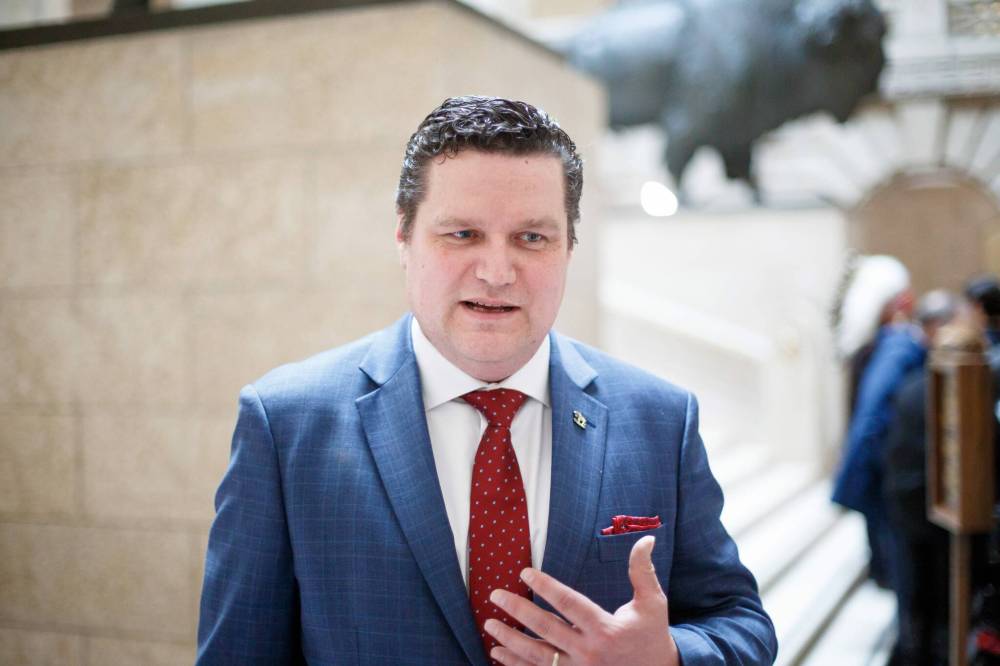NDP MLA’s bill mandating anti-racism training for provincial workers gets government backing
Advertisement
Read this article for free:
or
Already have an account? Log in here »
To continue reading, please subscribe:
Monthly Digital Subscription
$1 per week for 24 weeks*
- Enjoy unlimited reading on winnipegfreepress.com
- Read the E-Edition, our digital replica newspaper
- Access News Break, our award-winning app
- Play interactive puzzles
*Billed as $4.00 plus GST every four weeks. After 24 weeks, price increases to the regular rate of $19.00 plus GST every four weeks. Offer available to new and qualified returning subscribers only. Cancel any time.
Monthly Digital Subscription
$4.75/week*
- Enjoy unlimited reading on winnipegfreepress.com
- Read the E-Edition, our digital replica newspaper
- Access News Break, our award-winning app
- Play interactive puzzles
*Billed as $19 plus GST every four weeks. Cancel any time.
To continue reading, please subscribe:
Add Free Press access to your Brandon Sun subscription for only an additional
$1 for the first 4 weeks*
*Your next subscription payment will increase by $1.00 and you will be charged $16.99 plus GST for four weeks. After four weeks, your payment will increase to $23.99 plus GST every four weeks.
Read unlimited articles for free today:
or
Already have an account? Log in here »
Hey there, time traveller!
This article was published 29/05/2023 (874 days ago), so information in it may no longer be current.
Manitoba lawmakers are poised to mandate annual anti-racism training for more than 12,000 people on the provincial government’s payroll.
NDP MLA Jamie Moses’s Bill 241 is on deck to receive third reading and royal assent before the legislature rises on June 1, after receiving support from the Progressive Conservative government.
If passed, the legislation would require all government employees to take training “that aims to eliminate systemic racism and to advance understanding of human rights” each year.
MIKAELA MACKENZIE / WINNIPEG FREE PRESS FILES
NDP MLA Jamie Moses said anti-racism training must be mandated in law so it does not “fall by the wayside.” The proposed legislation does not stipulate penalties if an employee refuses to participate in the training.
The training must address implicit bias, how to challenge racism, and the discriminatory and unequal treatment of people based on ancestry or ethnicity.
Provincial employees already participate in programming and training on diversity, inclusion, and a safe, harassment-free workplace.
Moses said anti-racism training must be mandated in law so it does not “fall by the wayside.” The proposed legislation does not stipulate penalties if an employee refuses to participate in the training.
“Racism is not going to go away unless we put in consistent regular work,” Moses said.
“We’re going to ask people to work with us to fight against racism… we’re going to ask Manitobans, including the ones in the public service, to help be leaders in this.”
On May 24, the Tories allowed the bill to pass second reading and move through committee. Moses said the government has signalled its support and he expects the Tories to help bring the bill across the finish line.
During committee, government house leader Kelvin Goertzen said his caucus supports the legislation.
“While I think that there is significant training when it comes to racism within the civil service, having it in legislation is an important both recognition and a step, and I appreciate that he has brought this forward,” Goertzen said.
In a statement, Manitoba Government and General Employees’ Union president Kyle Ross expressed support for mandatory anti-racism training.

WINNIPEG FREE PRESS FILES
In a statement, Manitoba Government and General Employees’ Union president Kyle Ross expressed support for mandatory anti-racism training.
“Racism has no business in any workplace and it’s important that we support our co-workers and the public that we serve to ensure that no one is discriminated against,” Ross said.
The City of Winnipeg began offering all its employees anti-racism and anti-oppression training in 2021; Indigenous awareness training has been mandatory since 2016. At the federal level, the union that represents public service workers has called for more anti-racism training to be offered to its members.
The Law Society of Manitoba, meanwhile, has decided its members must take a mandatory Indigenous intercultural awareness and competency training course, effective Oct. 1. The program is intended to address gaps in education and to respond to the Truth and Reconciliation Commission’s calls to action.
Government Services Minister James Teitsma said enshrining anti-racism training in law acknowledges it is necessary and beneficial for the public service.
“Legislation like this makes it very clear that that’s not acceptable and that there needs to be sensitivity… that these kinds of things can happen in the workplace and that they need to be stopped,” he said. “The legislative framework will provide a reminder of that and a little more gravity to the situation.”
Teitsma said the bill would reinforce respectful workplace training that is already provided to the civil service. While he supports it, he could not say if it will become law.
“It’s important to understand, to have an eye on those inherent biases,” Teitsma said.
Moses, meanwhile, said he questions why the Tories did not support the bill nearly three years ago, when it was first brought forward.
The St. Vital MLA introduced it in the fall of 2020 in response to protests in Winnipeg and across the world following the murder of George Floyd by Minneapolis police. The bill did not make it past second reading at that time.

MIKE DEAL / WINNIPEG FREE PRESS FILES
Government Services Minister James Teitsma said enshrining anti-racism training in law acknowledges it is necessary and beneficial for the public service.
Moses said he chose to reintroduce the bill this month after comments made by Education Minister Wayne Ewasko on April 25. During debate in question period, Ewasko compared NDP Leader Wab Kinew to Manitoba actor Adam Beach.
The Opposition complained the comparison was based on the men’s First Nations ancestry and alleged the education minister had violated Kinew’s rights as an MLA when he was singled out for his race. Ewasko said the remark was not made with “ill intent” and offered a qualified apology.
Speaker Myrna Driedger has yet to rule on the incident.
“That immediately triggered in my mind the need for training when it comes to racism,” Moses said. “Having (anti-)racism training is an important thing that is needed, was needed in 2020, was needed even before that, but it’s certainly needed now in 2023.”
danielle.dasilva@freepress.mb.ca






